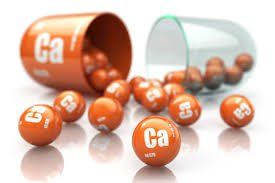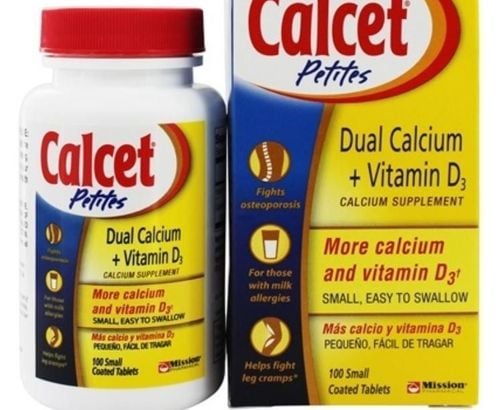This is an automatically translated article.
Alvethicone belongs to the group of mineral and vitamin supplements for the body with the main ingredient calcium citrate, cholecalciferol is often used to prevent and treat diseases caused by calcium deficiency as well as supplement calcium for cases of rickets and fractures in children. bone or premenopausal women. So how does Alvethicone work?1. What are the effects of Alvethicone?
Alvethicone contains the main ingredient is vitamin D3, which has anti-rickets effects, increases the absorption of calcium in the intestine as well as affects the metabolism and absorption of calcium phosphorus of the bones. The specific mechanism of action of vitamin D3 on the body is as follows:Vitamin D3 plays a very important role in the process of bone formation thanks to its effect on the metabolism of inorganic substances, mainly calcium and phosphate. Vitamin D3 increases the absorption of calcium and phosphate in the intestine, increases calcium reabsorption in the proximal tubule, participates in the calcification of growth cartilage. Therefore vitamin D3 is essential for the normal development of young children. Regulates blood calcium levels to keep it constant. Vitamin D3 is involved in the process of epithelial cell differentiation. When vitamin D3 is deficient, the intestines do not absorb enough calcium and phosphorus, causing blood calcium to decrease, from which calcium is mobilized from the bones to stabilize blood calcium levels, resulting in growth retardation, rickets, and bow legs. slow to walk, slow to hide. Adults will have osteoporosis, spongy bones, and fragile bones. Pregnant women with vitamin D deficiency may give birth to children with bone defects. In terms of pharmacokinetics, vitamin D3 is absorbed from the intestinal mucosa by bile salts and lipids, and accumulates in the liver, fat, bone, muscle and intestinal mucosa. , is eliminated mainly via the biliary tract to a small part. In the body, vitamin D3 is metabolized in the liver and kidneys to produce active metabolites and is eliminated mainly in the feces, to a small extent in the urine.
Alvethicone is usually indicated in the following cases:
Prevention and treatment of osteoporosis in women who are at high risk of osteoporosis. Treatment of bone diseases: Osteoporosis, rickets, osteomalacia, acute and chronic bone loss, Scheunemann's disease. Provide calcium and vitamin D3 for the growth of bones and teeth of children, adolescents, puberty and cases of increased calcium requirements (pregnant women, lactating women). Supplemental calcium treatment for patients on hemodialysis. Alvethicone is contraindicated in patients who are sensitive to any component of the drug or who have hypercalcemia, urinary calcium. Alvethicone should be used with caution in patients with a history of kidney stones, parathyroid disorders, and pregnant and lactating women.
2. Dosage of the drug Alvethicone
Depending on the subjects and treatment goals, the dose of Alvethicone will be different, specifically as follows:
Adults: Take 1-2 tablets/day. Drink with 1 glass of water after eating. For children with rickets, vitamin D3 must be supplemented early and continuously until the end of 5 years with 1 dose of 5mg (200,000 UI) every 6 months, the dose will be 10mg (400,000 UI) if the child rarely gets sun or dark skin. color. For children with calcium-deficiency seizures: Take supplemental doses of vitamin D3 like children with rickets and combine with calcium salts.
3. Alvethicone side effects
In some patients when using Alvethicone may experience side effects such as:
Allergy, rash, urticaria. Digestive disorders: Abdominal pain, nausea. Dizziness, headache. Red face, sweating, low blood pressure.
4. Be careful when using Alvethicone
Some general notes when using Alvethicone include:
Caution when using Alvethicone in cases of mild hypercalciuria, chronic renal failure or symptoms of calcium accumulation in the kidneys. It is recommended to monitor the concentration of calcium in the urine when using Alvethicone. Do not take the medicine within 3 hours of taking tetracycline. Above is all information about Alvethicone drug, patients need to carefully read the instructions for use, consult a doctor / pharmacist before using. Note, Alvethicone is a prescription drug, patients absolutely must not buy drugs and treat them at home because they may experience unwanted side effects.













